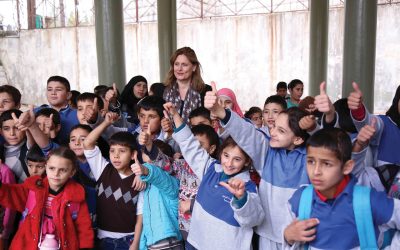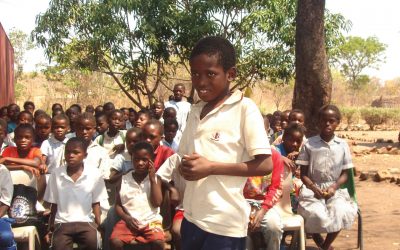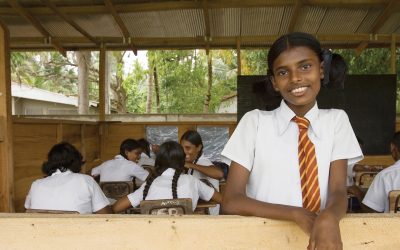Rotary clubs often help turn around the lives of a community, and that is what happened when a member of the Rotary Club of Leigh, Lancashire and his wife visited Bimma a village in the Ashanti region of Ghana.
Barry Coates and his wife Joan came across Bimma on a visit to the region and found a village of 2,500 people where farmers were scratching a living in terrible conditions. As a result of polluted water and bad sanitation the survival rate of babies under two years was low and those who did survive often suffered from malnutrition.
A chance meeting of a Rotarian close to the Leigh Rotary Club led to a tie up with a Ghanaian charity Ashanti Development which worked in the region. Barry Coates decided to visit the region and see for himself what was needed.
As a result Barry and the Rotary Club of Leigh went into action after his visit to the village in 2008 as Barry explains, “Our aim was to make everyone’s life tolerable, if possible even comfortable. We wanted to put them in a position where they could work themselves out of poverty.”
A big push for money to make all the changes needed to happen and was made and with the help of the Rotary Club of Newton-le-Willows, donations from a number of other Rotary clubs, friends and a plethora of other organisations including an Interact Club in Ramsbottom plus a Millennium Development Grant, a total of £80,000 was raised.
We wanted to put them in a position where they could work themselves out of poverty.”
The Leigh Rotary Club partnered with the Rotary Club of Kumasi and the project started to become reality.
As a result Bimma now has clean water to drink and every household has its own household latrine and some rudimentary understanding of germs.
Diarrhoea, which people previously regarded as a way of life, has all but disappeared, leading to much better health and energy levels. There are fewer mosquito born illnesses because nets have been distributed to every family and they have been trained to use them.
Nowadays, there is no hunger in the village and every child goes to school. There are small shops everywhere and plenty of building work is underway.
People have more spare time and keep the village cleaner than before – rubbish tips are tidier and footpaths are cleared.
Since Bimma as a village is prospering, people from less fortunate areas have asked to move and the population has doubled.
The Chief of Bimma has organised the flood of immigrants well, so old and new communities live peacefully with each other.
He stipulates that newcomers must learn health and hygiene and must construct their own latrines. “We understand now that latrines keep us healthy,” he says. “We don’t want newcomers to lower our standards.”
The work of Rotary has earned the undying gratitude of the village.
In a collective letter of thanks, the Chief, Elders, Assemblyman and citizens wrote to express their profound appreciation of the numerous ways in which Rotary had improved their lives.
They asked Rotary to continue working in the area, since surrounding villages still suffer hardship, and they sent their blessings for all the Rotary’s undertakings.
“We cannot find words to thank you adequately. We thank you forever for adopting Bimma as your second home,” they said.


























































